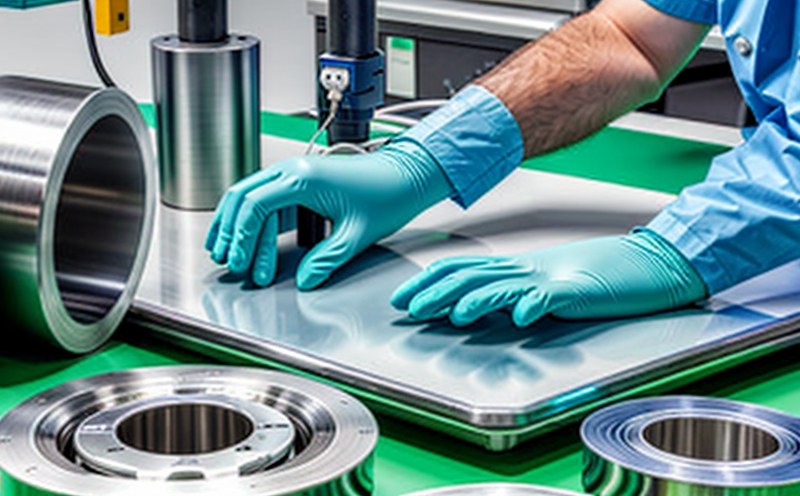Evaluating the use of sustainable materials in medical device manufacturing
Revolutionizing Medical Device Manufacturing The Crucial Role of Sustainable Materials
In todays fast-paced world of medical device manufacturing, the demand for innovative and effective products is at an all-time high. As healthcare professionals strive to provide top-notch care, manufacturers must respond by creating devices that not only meet but exceed industry standards. Amidst this rush to innovation, one critical aspect often takes a backseat sustainable materials.
This article delves into the pivotal world of evaluating the use of sustainable materials in medical device manufacturing, highlighting its significance and showcasing the numerous advantages it brings to businesses like Eurolab, who provide laboratory services tailored specifically for this sector. By embracing sustainability, manufacturers can not only contribute positively to the environment but also reap substantial benefits that enhance their bottom line.
The Importance of Sustainable Materials in Medical Device Manufacturing
In recent years, there has been a growing emphasis on incorporating sustainable practices into various industries, including medical device manufacturing. This shift towards eco-friendliness is driven by an increasing awareness of environmental concerns and the pressing need for responsible business practices. By opting for sustainable materials, manufacturers can significantly reduce their ecological footprint while ensuring the quality and safety of their products.
Advantages of Using Sustainable Materials in Medical Device Manufacturing
The adoption of sustainable materials in medical device manufacturing offers a multitude of benefits that extend beyond environmental considerations. Some of these advantages include
Reduced Environmental Impact
- Decreased Carbon Footprint By choosing materials with lower production and transportation costs, manufacturers can significantly reduce their carbon emissions.
- Conservation of Resources Sustainable materials often require less water and energy for processing, thereby preserving natural resources.
Cost Savings
- Lower Material Costs Sustainable materials are frequently less expensive to procure than traditional alternatives.
- Extended Product Lifespan Eco-friendly products tend to have a longer lifespan, reducing the need for frequent replacements.
Enhanced Brand Reputation
- Increased Customer Trust Consumers increasingly prioritize companies that adopt sustainable practices, enhancing brand reputation and loyalty.
- Differentiation in the Market By embracing eco-friendliness, manufacturers can differentiate themselves from competitors.
Compliance with Regulatory Requirements
- Adherence to Environmental Standards Governments worldwide are implementing stricter regulations regarding environmental sustainability. Companies using sustainable materials stay ahead of these requirements.
- Reduced Risk of Supply Chain Disruptions Manufacturers opting for environmentally friendly practices reduce the likelihood of supply chain disruptions caused by environmental concerns.
Innovation and RD Opportunities
- Encouraging In-House Research The pursuit of sustainable materials fosters innovation, driving in-house research and development.
- Stay Ahead of Competitors Companies embracing eco-friendliness position themselves for future regulatory requirements and emerging trends.
Why Eurolab Stands Out in Laboratory Services
At Eurolab, we recognize the pivotal role sustainable materials play in medical device manufacturing. Our laboratory services are designed to cater specifically to this sectors needs, ensuring that our clients receive top-notch support every step of the way. With a deep understanding of the industrys evolving landscape, we help manufacturers navigate the complexities of evaluating and implementing sustainable practices.
QA Frequently Asked Questions
Q1 What is the primary advantage of using sustainable materials in medical device manufacturing?
A The primary advantage lies in the significant reduction of environmental impact. Sustainable materials are often made from recycled or biodegradable components, significantly decreasing carbon emissions and resource consumption.
Q2 How do sustainable materials affect product quality?
A Eco-friendly materials can enhance product quality by ensuring better durability and resistance to corrosion. Additionally, many sustainable materials exhibit superior performance characteristics compared to traditional alternatives.
Q3 Are sustainable materials more expensive than conventional ones?
A Not always. While some eco-friendly materials might initially seem pricier, their long-term benefits often outweigh the costs. Reduced maintenance needs, lower replacement rates, and enhanced brand reputation can lead to substantial savings over time.
Q4 How can manufacturers ensure theyre using sustainable materials effectively?
A Effective integration of sustainable materials requires a comprehensive approach. Manufacturers should conduct thorough research, engage with suppliers, and monitor product performance over time. Regular audits and assessments can also help identify areas for improvement.
Conclusion
The era of sustainable materials in medical device manufacturing is not just a trend; its a necessity. Companies that embrace eco-friendliness stand to gain significantly from cost savings, enhanced brand reputation, and compliance with evolving regulatory requirements. Eurolab is at the forefront of this movement, providing laboratory services tailored to support manufacturers through every stage of their journey towards sustainability.
By choosing sustainable materials, businesses can contribute positively to the environment while setting themselves up for long-term success in a rapidly changing industry landscape. The path forward is clear its time for medical device manufacturing to go green.




